August 12, 2021 | Vanessa McMains
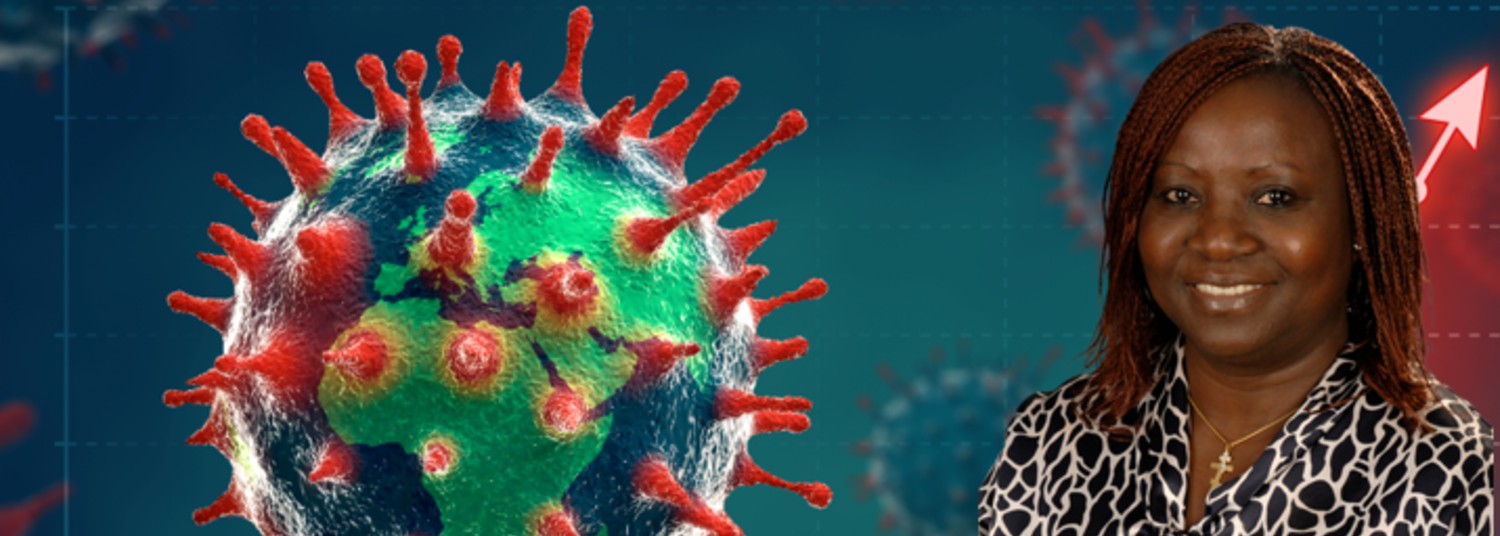
The Coalition for Epidemic Preparedness Innovations (CEPI) has announced that Alash'le Abimiku, PhD, Professor of Medicine at the University of Maryland School of Medicine (UMSOM) and scientist at UMSOM’s Institute of Human Virology (IHV), will join CEPI’s Scientific Advisory Committee for a three-year appointment. CEPI supports research and development programs in response to infectious outbreaks such as the current COVID-19 pandemic, as well as future pandemics. UMSOM’s Institute of Human Virology is a Global Virus Network (GVN) Center of Excellence.
Dr. Abimiku, who is also the Executive Director of International Research Center of Excellence at the Institute of Human Virology-Nigeria, joins 33 other members, ranging from immunologists, preclinical researchers, and clinical trial experts to industry partners, and global health professionals.
The CEPI’s Scientific Advisory Committee is an independent advisory body that meets quarterly to provide scientific support, advice, and guidance to CEPI staff and the CEPI Board.
“I am honored to be selected to join the Committee, as CEPI is a unique organization with a successful track record of brokering collaborations between researchers, industry, governments, health ministries, and communities to determine what emerging diseases need vaccines, and then supporting the development, manufacturing and distributing of these vaccines to communities globally,” said Dr. Abimiku.
Dr. Abimiku’s expertise and background lie in emerging diseases of West Africa, such as tuberculosis, HIV, Lassi fever, and Ebola.
“As a result of my experience working on cutting edge science and research at NIH and subsequently at the Institute of Human Virology, I have a better appreciation of the need to apply that research on international public health challenges in Africa which gives me a unique vantage point to bridge these two worlds,” said Dr. Abimiku. “I have a unique opportunity to be a voice that represents the African community, because I understand the culture and issues of priority discussed in the community.”
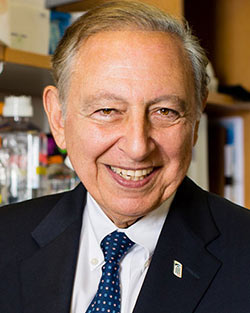 Robert C. Gallo, MD, The Homer & Martha Gudelsky Distinguished Professor in Medicine, Co-Founder and Director of the Institute of Human Virology and Global Virus Network Co-Founder and International Scientific Advisor, said, “Alash’le came to work with me when I was at NCI of NIH. She was as a budding young doctor from Nigeria filled with desire to make a difference for Africa via medical science. She was my first post-doctoral fellow from Africa and indeed my first contact with Africa. After we formed the IHV in Baltimore, she catalyzed the burgeoning and ever closer relationship IHV developed with Africa originally being fostered in Public Health by Institute co-founders, Bill Blattner and Bob Redfield, and now led by Man Charurat through the Institute of Human Virology’s Center for International Health Education and Bioscecurity (CIHEB). It is a great story, and Alash’le is in its center.”
Robert C. Gallo, MD, The Homer & Martha Gudelsky Distinguished Professor in Medicine, Co-Founder and Director of the Institute of Human Virology and Global Virus Network Co-Founder and International Scientific Advisor, said, “Alash’le came to work with me when I was at NCI of NIH. She was as a budding young doctor from Nigeria filled with desire to make a difference for Africa via medical science. She was my first post-doctoral fellow from Africa and indeed my first contact with Africa. After we formed the IHV in Baltimore, she catalyzed the burgeoning and ever closer relationship IHV developed with Africa originally being fostered in Public Health by Institute co-founders, Bill Blattner and Bob Redfield, and now led by Man Charurat through the Institute of Human Virology’s Center for International Health Education and Bioscecurity (CIHEB). It is a great story, and Alash’le is in its center.”
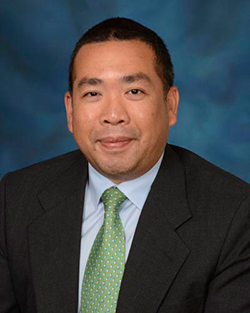 Man E. Charurat, PhD, MHS, Professor of Medicine and Director of the Division Director of Epidemiology & Prevention at the Institute of Human Virology, and Director of CIHEB, founded at the Institute of Human Virology and within the University of Maryland School of Medicine, added:
Man E. Charurat, PhD, MHS, Professor of Medicine and Director of the Division Director of Epidemiology & Prevention at the Institute of Human Virology, and Director of CIHEB, founded at the Institute of Human Virology and within the University of Maryland School of Medicine, added:
“Dr. Abimiku has been a driving force in the IHV’s and CIHEB’s Pan-African initiative for emerging infectious diseases. Her appointment to CEPI is a testament to the high scientific stature in which Dr. Abimiku is recognized in the global health community and hails her impactful work in vaccines, surveillance, and laboratory diagnostics in Africa.”
Richard Hatchett, MD, Chief Executive Officer of CEPI, commented: “We look forward to working with our new colleagues who, through their scientific flair and creativity, will be instrumental in guiding us and the world forward in our response to epidemic and pandemic disease. In selecting our new members, we have created a global forum of voices with diverse scientific and cultural input to build on the lessons of the COVID-19 pandemic and catalyze progress tackling the global health challenges that lie ahead of us.”
Find out more about CEPI’s Scientific Advisory Committee here.
About the Institute of Human Virology
Formed in 1996 as a partnership between the State of Maryland, the City of Baltimore, the University System of Maryland, and the University of Maryland Medical System, the IHV is an institute of the University of Maryland School of Medicine and is home to some of the most globally-recognized and world-renowned experts in all of virology. The IHV combines the disciplines of basic research, epidemiology, and clinical research in a concerted effort to speed the discovery of diagnostics and therapeutics for a wide variety of chronic and deadly viral and immune disorders - most notably, HIV the virus that causes AIDS. For more information, visit www.ihv.org and follow us on Twitter @IHVmaryland.
About CEPI
CEPI is an innovative partnership between public, private, philanthropic, and civil organisations, launched at Davos in 2017, to develop vaccines against future epidemics. Prior to COVID-19 CEPI’s work focused on developing vaccines against Ebola virus, Lassa virus, Middle East Respiratory Syndrome coronavirus, Nipah virus, Rift Valley Fever virus and Chikungunya virus – it has over 20 vaccine candidates against these pathogens in development. CEPI has also invested in new platform technologies for rapid vaccine development against unknown pathogens (Disease X).
During the current pandemic, CEPI initiated multiple programmes to develop vaccines against SARS-CoV-2 and its variants with a focus on speed, scale and access. These programmes leverage the rapid response platforms previously developed by CEPI’s partners prior to the emergence of COVID-19 as well as new collaborations. The aim is to advance clinical development of a diverse portfolio of safe and effective COVID-19 candidates and to enable fair allocation to these vaccines worldwide through COVAX.
CEPI’s 5-year plan lays out a $3.5 billion roadmap to compress vaccine development timelines to 100 days, develop a universal vaccine against COVID-19 and other Betacoronaviruses, and create a “library” of vaccine candidates for use against known and unknown pathogens. The plan is available at endpandemics.cepi.net.
Follow CEPI’s news page for the latest updates, and on Twitter and LinkedIn.
About the University of Maryland School of Medicine
Now in its third century, the University of Maryland School of Medicine was chartered in 1807 as the first public medical school in the United States. It continues today as one of the fastest growing, top-tier biomedical research enterprises in the world -- with 46 academic departments, centers, institutes, and programs, and a faculty of more than 3,000 physicians, scientists, and allied health professionals, including members of the National Academy of Medicine and the National Academy of Sciences, and a distinguished two-time winner of the Albert E. Lasker Award in Medical Research. With an operating budget of more than $1.2 billion, the School of Medicine works closely in partnership with the University of Maryland Medical Center and Medical System to provide research-intensive, academic and clinically based care for nearly 2 million patients each year. The School of Medicine has nearly $600 million in extramural funding, with most of its academic departments highly ranked among all medical schools in the nation in research funding. As one of the seven professional schools that make up the University of Maryland, Baltimore campus, the School of Medicine has a total population of nearly 9,000 faculty and staff, including 2,500 students, trainees, residents, and fellows. The combined School of Medicine and Medical System (“University of Maryland Medicine”) has an annual budget of over $6 billion and an economic impact of nearly $20 billion on the state and local community. The School of Medicine, which ranks as the 8th highest among public medical schools in research productivity (according to the Association of American Medical Colleges profile) is an innovator in translational medicine, with 606 active patents and 52 start-up companies. In the latest U.S. News & World Report ranking of the Best Medical Schools, published in 2021, the UM School of Medicine is ranked #9 among the 92 public medical schools in the U.S., and in the top 15 percent (#27) of all 192 public and private U.S. medical schools. The School of Medicine works locally, nationally, and globally, with research and treatment facilities in 36 countries around the world. Visit medschool.umaryland.edu
Contact
Vanessa McMains
Director, Media & Public Affairs
Institute of Human Virology
vmcmains@ihv.umaryland.edu
443-875-6099
Related stories
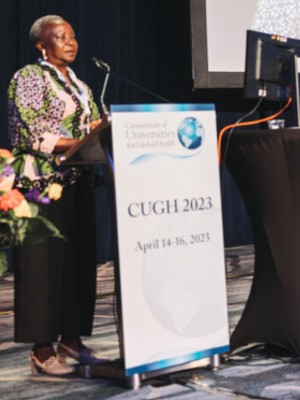
Monday, May 15, 2023
MPower: MPower Sponsors CUGH 2023 Global Health Conference
University of Maryland’s Strategic Partnership: MPowering the State co-sponsored the 14th annual Consortium of Universities for Global Health (CUGH) conference: “Global Health at a Crossroads: Equity, Climate Change, and Microbial Threats” in Washington, DC last month. Held in-person for the first time since 2019, the conference took place from April 14 through April 16. Over the course of those three days, University of Maryland, Baltimore (UMB) and University of Maryland, College Park (UMCP) faculty, staff, students were among 1,600 participants from around the globe.
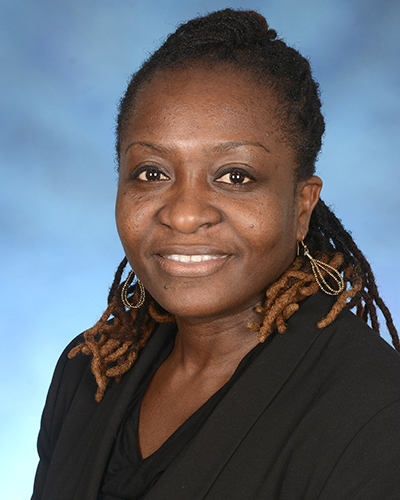
Monday, May 09, 2022
Quartz: The cause of the next pandemic is probably already here
A bird flu is spreading again. Several cases of very contagious avian influenza have been identified in the states of Washington, Oregon, Maryland, and Delaware, where over 3 million cases in chickens have been identified since February. At least 80 vultures, too, have died of the disease. Last week, the U.S. Centers for Disease Control and Prevention also reported a case of human avian influenza A(H5) in Colorado, the second associated with the current outbreak of avian flu among birds, which started in 2021. Meanwhile, the first human (a Chinese boy in Henan province) tested positive for H3N8, a strand of avian flu so far known to only infect animals and birds.

Friday, April 02, 2021
Baltimore Sun: Q&A with Dr. Robert Gallo: ‘The world has to be linked to fight a pandemic’
Robert Gallo, the eminent virologist best known as co-discoverer of the AIDS virus, says the world needs a system to confront viral disease that’s free of politics and primed to quickly warn nations about new threats as if “the bad Martians are coming.” The uneven and politicized response to the coronavirus pandemic, with a worldwide toll approaching 3 million, including 553,000 deaths in the United States, proves Gallo’s point.
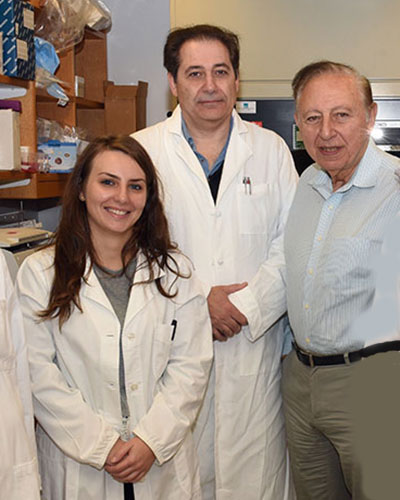
Friday, August 21, 2020
Institute of Human Virology and Italian Researchers identify a SARS-CoV-2 Viral Strain with Deletion in a Protein, Possibly Reducing Fatalities
The Institute of Human Virology (IHV) at the University of Maryland School of Medicine, a Global Virus Network (GVN) Center of Excellence, in collaboration with scientists from Campus Biomedico in Rome, Italy announced today the results of studies showing the emergence of a SARS-CoV-2 viral strain with a deletion in a protein known as nsp1. These data, accepted for publication today by the Journal of Translational Medicine, (link here) may indicate the emergence of a less pathogenic viral strain.

